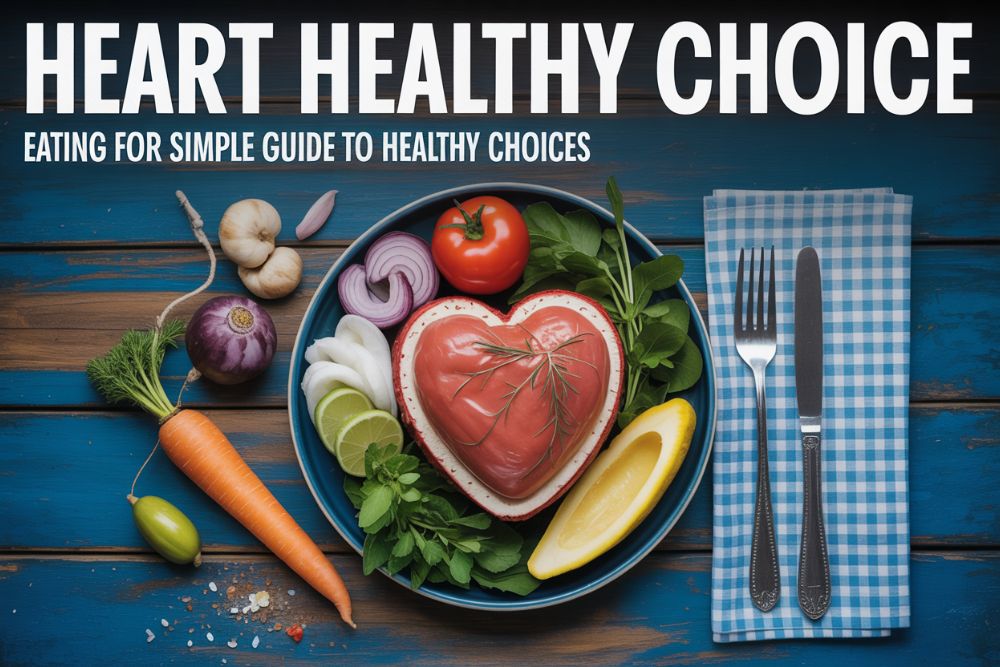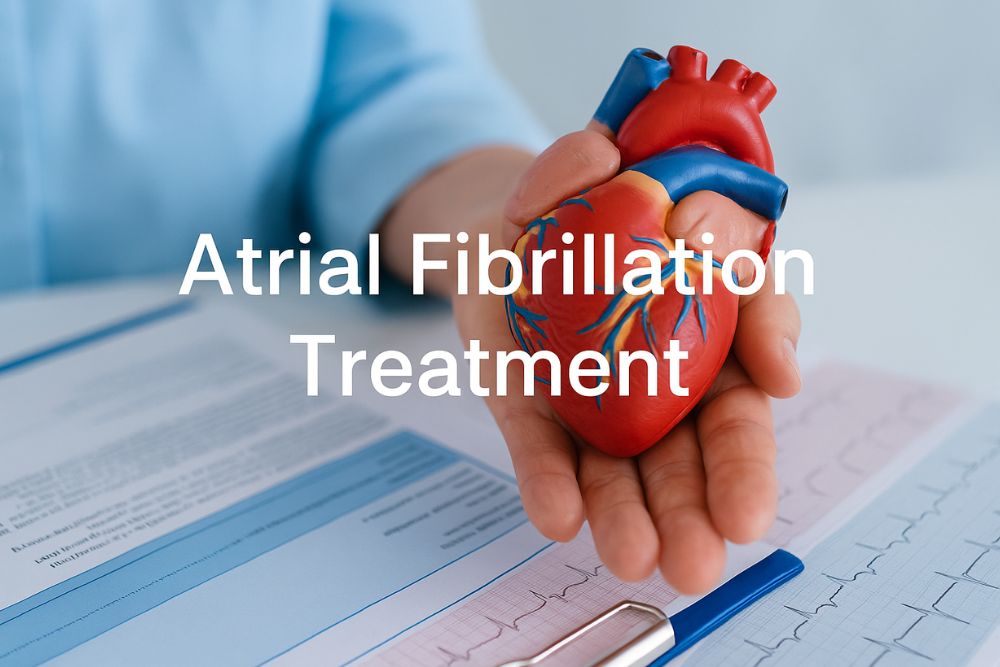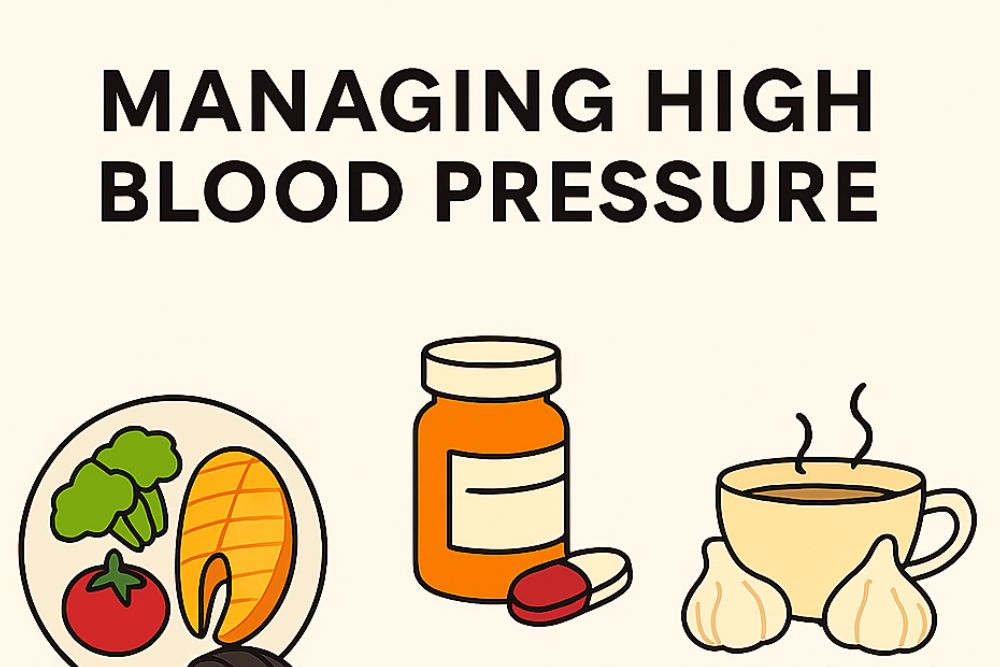Eating for Heart Health: A Simple Guide to Healthy Choices
Rowan Wallace
2025-11-06
6 min read

Maintaining a heart-healthy diet is essential for reducing the risk of cardiovascular disease. The foods chosen can significantly impact heart health by supporting good cholesterol levels, lowering blood pressure, and reducing inflammation. Incorporating the following foods into the diet can help support heart function and overall well-being.
1. Leafy Greens
Leafy greens, such as spinach, kale, and swiss chard, are rich in vitamins, minerals, and antioxidants that promote heart health. These vegetables are high in fiber and low in calories, helping to regulate blood pressure and cholesterol levels. The high levels of vitamin K in leafy greens also support blood clotting, further contributing to cardiovascular health.
2. Fatty Fish
Fatty fish, including salmon, mackerel, and sardines, are packed with omega-3 fatty acids, which have been shown to reduce the risk of heart disease. Omega-3s help lower triglyceride levels, reduce inflammation, and support overall heart function. Eating fatty fish two to three times a week can significantly benefit cardiovascular health.
3. Berries
Berries like blueberries, strawberries, and raspberries are loaded with antioxidants, particularly anthocyanins, which can help lower blood pressure and reduce oxidative stress. Studies suggest that consuming berries regularly may improve cholesterol levels and protect against heart disease.
4. Nuts and Seeds
Nuts, such as almonds, walnuts, and pistachios, and seeds like chia, flax, and sunflower seeds, are excellent sources of healthy fats, fiber, and plant-based protein. These foods help lower LDL cholesterol (the "bad" cholesterol) and increase HDL cholesterol (the "good" cholesterol), improving heart health. Additionally, they provide magnesium, which supports normal heart rhythm.
5. Whole Grains
Whole grains like oats, quinoa, brown rice, and barley are rich in fiber, which helps reduce cholesterol levels and stabilize blood sugar. Consuming whole grains instead of refined grains may lower the risk of heart disease by improving lipid profiles and reducing inflammation.
6. Avocados
Avocados are a great source of monounsaturated fats, which can help lower bad cholesterol levels while maintaining good cholesterol. They also contain potassium, which helps regulate blood pressure. Including avocados in the diet may reduce the risk of heart disease and support overall cardiovascular health.
7. Legumes
Legumes such as beans, lentils, and chickpeas are high in fiber and plant-based protein, which can help reduce cholesterol and regulate blood sugar levels. These foods are also low in fat and provide a healthy alternative to animal proteins, which may contribute to heart disease when consumed in excess.
Foods to Avoid for a Healthy Heart
Certain foods should be minimized or avoided to maintain a healthy heart. These foods can contribute to high cholesterol, high blood pressure, and inflammation, all of which increase the risk of heart disease.
1. Trans Fats
Trans fats, often found in processed and fried foods, baked goods, and margarine, can raise bad cholesterol (LDL) and lower good cholesterol (HDL). These unhealthy fats increase the risk of heart disease and should be avoided as much as possible.
2. Refined Sugars
Foods high in refined sugars, such as sugary beverages, candies, and baked goods, can contribute to obesity, insulin resistance, and high blood pressure. Excess sugar intake is associated with an increased risk of developing heart disease.
3. Processed Meats
Processed meats like sausages, hot dogs, and bacon are high in saturated fats and sodium, both of which can contribute to high blood pressure and increase the risk of heart disease. These meats should be consumed sparingly or replaced with leaner, plant-based protein sources.
4. Excessive Salt
A high-sodium diet can lead to high blood pressure, a major risk factor for heart disease. Reducing the intake of salty snacks, canned foods, and processed meals can help lower blood pressure and reduce the risk of cardiovascular problems.
5. Refined Grains
Refined grains, such as white bread, pasta, and rice, are low in fiber and nutrients. They can cause blood sugar spikes and contribute to weight gain, which increases the risk of heart disease. Opting for whole grains instead can provide better cardiovascular benefits.
Conclusion
A heart-healthy diet emphasizes nutrient-rich foods that promote cardiovascular health, while avoiding processed and high-fat foods that contribute to disease. Incorporating plenty of fruits, vegetables, whole grains, and healthy fats into daily meals can significantly improve heart health and reduce the risk of heart disease.
Sources:
- American Heart Association: Healthy Eating for a Healthy Heart
- Mayo Clinic: Heart-Healthy Diet: 8 Foods to Boost Your Heart Health
- Harvard T.H. Chan School of Public Health: The Nutrition Source: Heart Health
More Trending Articles

Understanding Atrial Fibrillation: Effective Treatments and Tips for Management
Lena Grant
2025-11-17


